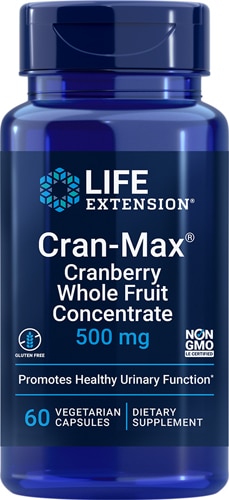[vc_row][vc_column][vc_column_text]The pain that kidney stones can induce is the stuff of legend—oft compared to the pain of giving birth. This may be an underestimate. It is much worse and more painful, women who have been through both will testify.

What are kidney stones?
These painful urinary deposits—masses of tiny crystals—are on the rise, affecting about 12 percent of people worldwide. Although they affect twice as many men than women, prevalence in women is increasing.
The research still hasn’t uncovered a definitive reason why kidney stones are steadily climbing, but a growing consensus suggests the rise is mirrored in increases in cases of obesity, diabetes and high blood pressure. The crystals develop because of too much waste in too little liquid. Other possible causes include chronic dehydration, weight loss surgery and eating food (such as too salty or sweet) that encourage the growth of kidney stones.
When they come to pass, the stones trigger tiny pulsing waves—renal colic—that push the kidney stone through your urinary tract and out of your body. Fortunately, kidney stones are not pre-destined. If you are willing to make some diet and lifestyle changes, the following natural ways to prevent kidney stones can be surprisingly effective.
How to prevent kidney stones
Preventing kidney stones is not only possible, it’s well advised. Particularly because often they are not one and done: in about half of people who have had one, another one recurred within seven years. Kidney stones don’t necessarily cause long term damage but passing them can be excruciating. As far as long-term consequences go, according to the National Kidney Foundation, “kidney stones increase the risk of developing chronic kidney disease.”
While genetics do play a role in their occurrence, with determination and smart choices, you can minimize your chances of having kidney stones.
1. Hydrate responsibly
Drinking water isn’t just good for your health—it’s good for your urine. Water dilutes the acids in urine that, if too concentrated, leads to stones. Dehydration is the No. 1 cause of kidney stones and the No. 1 method of preventing it. Sugar sweetened beverages, such as soda and fruit juice, give the illusion of quenching thirst but actually cause dehydration.
Habits that begin in childhood could contribute to kidney stones later in life: According to a
nationwide study from the American Journal of Public Health, more than half of children and teenagers in the United States drink inadequate amounts of water. To help stay on top of your fluid intake, try adding a splash of citrus, like lemon juice or orange juice. The citrate in these beverages helps block stone formation.
Bonus tip: One surprising trickle-down effect of global warming may be an increase in kidney stones. One study found a
link between hot days and kidney stones in 60,000 patients in several U.S. cities with varying climates. Because sweat promotes dehydration, pay attention to rising temps all year round and replenish your fluids accordingly.
2. Cut back on sodium
High-sodium diets can trigger kidney stones because they escalate the amount of calcium in your urine. Especially for the stone-prone, current guidelines suggest limiting total daily sodium intake to 2,300 mg. If sodium has caused your kidney stones in the past, aim to reduce daily sodium intake to 1,500 milligrams.
Bonus tip: Certain foods have exorbitant amounts of sodium, such as many kinds of soup, canned foods, cottage cheese, bagels and snacks such as Chex Mix. Read the label for sodium content—and adjust your salt cravings accordingly.
Siete Kettle Cooked Potato Chips Fuego, for example, are less than half the sodium content of most chips.
3. Eat more plant-based protein
When you eat too much animal protein such as red meat, poultry, eggs and seafood, levels of
uric acid (purines) builds up in your urine. Organ meats are the biggest culprits—they have astoundingly high levels of purines. Consider replacing some of the animal-based protein you would typically eat with plant-based alternatives such as beans, lentils and pulses.
Bonus tip: The dizzying influx of
plant-based alternatives to meat means good things for those who need to reduce their meat intake. Many claim these faux meats taste even better than the real thing.
4. Avoid an overly restrictive diet
Many nutrient-rich foods contain oxalates natural compounds found in vegetables, especially leafy greens, fruits, nuts and grains. While oxolate sounds like a good thing, oxalate and calcium bind together in the intestine and leave the body together in the stool. According to John Hopkins Medicine, “if there is not enough calcium, then the extra oxalate will have nothing in the intestine to bind to, so it will be absorbed into the bloodstream and end up in the urine, where it will form a calcium oxalate stone.”
But if you avoid oxalates altogether, you could end up with a nutrient deficient diet. There is much disagreement amongst urologists on this. Many would advise patients to exclude all oxalates from the diet. But that would mean a kidney stone patient would consume a high simple carb diet since most oxalate-free foods are carbs.
Bonus tip: If you are predisposed to kidney stones, minimize spinach and almonds, as they are by far the food that contains the highest concentration of oxalates.
5. Don’t forgo calcium
While the prevailing wisdom for kidney stone prevention was to avoid calcium, getting too little calcium (which binds with oxalates to speed their removal) can also trigger oxalate levels to rise, actually increasing one's risk of developing kidney stones. Your body needs dietary calcium to support the strong bones. You should consume two servings of dairy (between 800 mg and 1,200 mg per day) or other calcium-rich foods to maintain bone stores of calcium.
Bonus tip: If you do want to eat the occasional high-oxalate food, such as a spinach, pair it with some calcium. The calcium and oxalate bind together in the intestines, reducing the formation of stones. For example, if you must eat that spinach salad, try sprinkling some cheese on it.
6. Maintain a healthy weight
Obesity increases the risk of kidney stones. Older women between the ages of 34-59 who weighed more than 220 pounds had almost a 90 percent higher risk of kidney stones compared with those weighing less than 150 pounds. Obesity causes metabolic imbalances that encourages the formation of calcium-containing kidney stones.
Bonus tip: If you commit to losing weight, proceed with caution. Many high-protein weight loss diets (think paleo and keto) require extreme amounts of animal-based protein, increasing the risk of developing stones.
Prevention is paramount when it comes to kidney stones. Following these general guidelines—moderate protein intake, minimal salt ingestion, and drinking enough clear liquids to generate two liters of urine per day—should provide a strong foundation for kidney health. However, if you suspect that genetic factors or other medical conditions might predispose you to kidney stones, discuss your concerns with your healthcare provider.
†These statements have not been approved by the Food and Drug Administration. These products are not intended to diagnose, treat, cure or prevent disease.[/vc_column_text][/vc_column][/vc_row][vc_row][vc_column][vc_text_separator title="Featured Products" border_width="2"][vc_row_inner equal_height="yes" content_placement="middle" gap="35"][vc_column_inner width="1/3"][vc_single_image image="172818" img_size="full" alignment="center" onclick="custom_link" img_link_target="_blank" css=".vc_custom_1707665201623{padding-right: 7% !important;padding-left: 7% !important;}" link="https://www.vitacost.com/michaels-naturopathic-programs-kidney-factors-120-vegetarian-tablets"][/vc_column_inner][vc_column_inner width="1/3"][vc_single_image image="172819" img_size="full" alignment="center" onclick="custom_link" img_link_target="_blank" css=".vc_custom_1707665223618{padding-right: 7% !important;padding-left: 7% !important;}" link="https://www.vitacost.com/vitacost-urinary-support-complex-with-cranberry"][/vc_column_inner][vc_column_inner width="1/3"][vc_single_image image="172820" img_size="full" alignment="center" onclick="custom_link" img_link_target="_blank" css=".vc_custom_1707665240545{padding-right: 7% !important;padding-left: 7% !important;}" link="https://www.vitacost.com/azo-cranberry-urinary-tract-health-100-softgels"][/vc_column_inner][/vc_row_inner][/vc_column][/vc_row]




